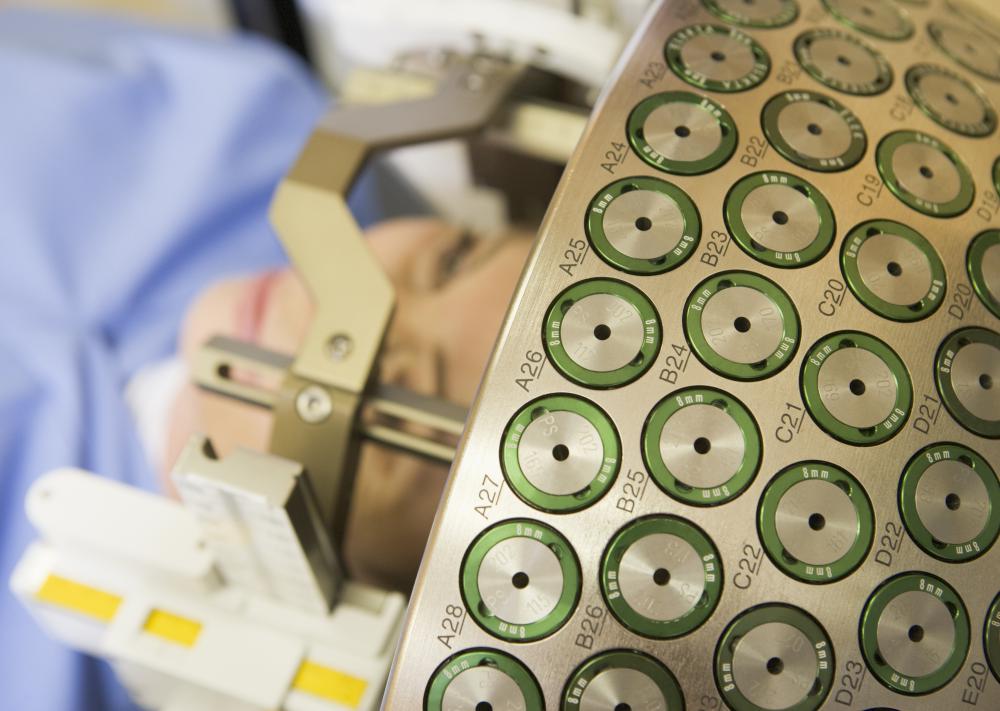At PracticalAdultInsights, we're committed to delivering accurate, trustworthy information. Our expert-authored content is rigorously fact-checked and sourced from credible authorities. Discover how we uphold the highest standards in providing you with reliable knowledge.
How do I Become a Medical Dosimetrist?
There are a number of routes someone can take to become a medical dosimetrist. All of the possible routes culminate with a certification exam in which the candidate demonstrates that he or she has the skills and training necessary to practice safely. After becoming certified, many medical dosimetrists also join professional organizations so that they have access to continuing education, trade journals with new information about the field, and a network of colleagues.
The medical dosimetrist is an important part of the team of healthcare providers which offer radiation oncology to patients. When someone is diagnosed with cancer and the primary physician believes that radiation treatments would be beneficial, the patient is referred to a radiation oncologist, who writes a prescription. The medical dosimetrist is responsible for calculating how and where the dose will be delivered, with the goal of targeting the cancer and minimizing damage to the patient. Calculations are primarily carried out with a computer.

To become a medical dosimetrist, someone can take a two year training program through a college or hospital. It is also possible to train on the job for two years with a bachelor's degree in the sciences, or to receive four years of on the job training with an associate degree in the sciences. A certified radiation therapy technologist can also become a medical dosimetrist, by taking two years of on the job training. All of these routes require the candidate to develop basic skills which include knowledge of human anatomy and physiology, an understanding of how radiation therapy works, and proficiency with computer systems used in medical dosimetry.

After someone has completed his or her training, it is possible to take a certification exam. Some students like to extend their training before they sit the exam to become a medical dosimetrist, to confirm that they have as much information as possible so that they will feel confident practicing independently and without supervision. Once the exam is passed, the dosimetrist will need to periodically recertify, demonstrating that he or she is still competent.

Someone who wants to become a medical dosimetrist should be aware that the job requires a great deal of math and physics, with precise calculations being critical because small errors can translate into major complications for the patient. It is also necessary to interact with patients on a regular basis. Many medical dosimetrist accompany their patients to medical imaging studies so that they can learn about the details of the patient's condition, and they also talk with the patient about expectations for treatment, discuss side effects, and work with the rest of the medical team to keep the patient comfortable.
AS FEATURED ON:
AS FEATURED ON:













Discuss this Article
Post your comments